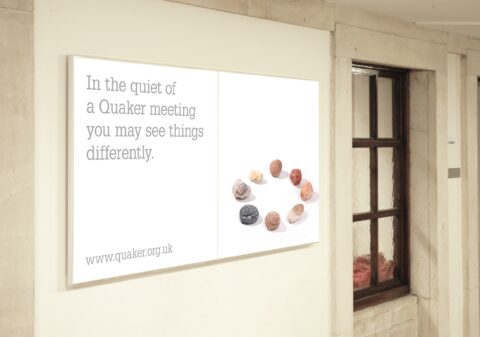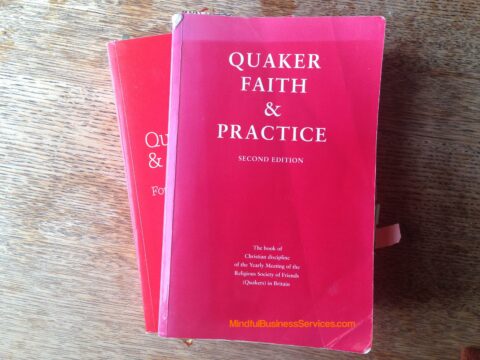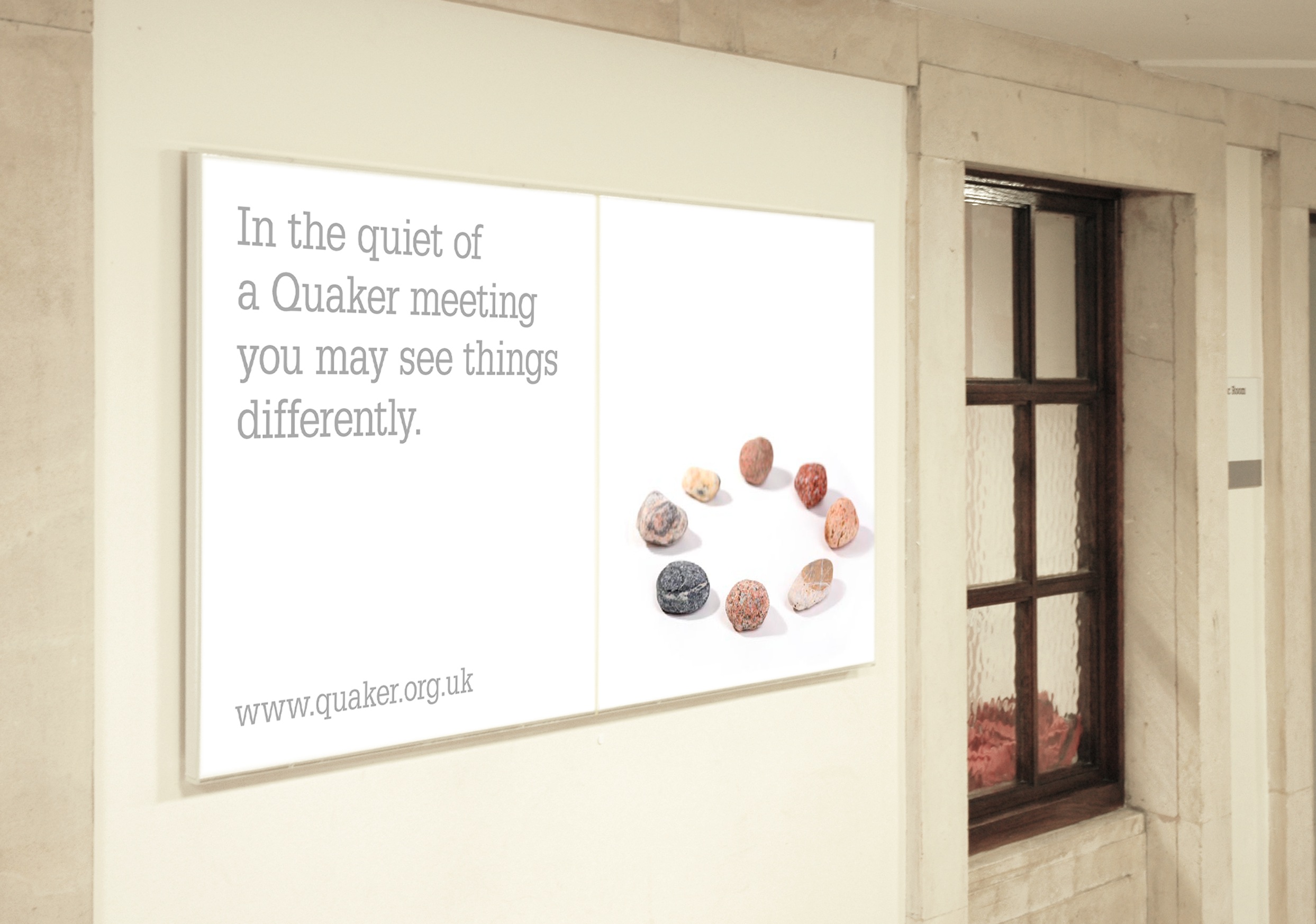Exploring Quaker Faith and Practice

I’ve been a Quaker all of my life, and as a result Mindful Business Services has a definite Quaker flavour. However, not everyone at MBS is a Quaker. And the same is true of many of the groups we work with. So this page hopes to help you work out what Quakers are talking about when describing their faith and give you an idea of the practice of those values in their lives – including at work.

Quakers in Britain have a website that goes into more detail about what Quakers believe and how they live out those beliefs: Quaker.org.uk
If you are looking for specifics about the way meetings and the whole church are organised, we at MBS have a free ‘Quaker Structures’ course over on our classroom website.
As with most faiths, Quakers vary across the world. When we talk about Quaker values and testimonies, either on this website or in our courses, we will be referring to British Quakers unless we specifically say otherwise.
If you are interested in learning more about Quakers internationally, Friends World Committee for Consultation have a website and links to each of the various sections around the globe. Quakers in Britain are part of the European and Middle Eastern Section.
Quaker Faith
While there are lots of things to read (and every Quaker will probably have slightly different beliefs), as a group Quakers may talk about a ‘Testimony to….’ and as a short hand they’re often listed as Peace, Equality, Truth (or Integrity), and Simplicity. But that doesn’t explain why they make decisions referring to those testimonies.
The word ‘testimony’ is used by Quakers to describe a witness to the living truth within the human heart as it is acted out in everyday life. It is not a form of words, but a mode of life based on the realisation that there is that of God in everybody, that all human beings are equal, that all life is interconnected. It is affirmative but may lead to action that runs counter to certain practices currently accepted in society at large. Hence a pro-peace stance may become an anti-war protest, and a witness to the sacredness of human life may lead to protests against capital punishment. These testimonies reflect the corporate beliefs of the Society, however much individual Quakers may interpret them differently according to their own light. They are not optional extras, but fruits that grow from the very tree of faith.
Quakers in Britain embrace diversity amongst the faith; they no longer ‘read out’ someone who doesn’t reflect the larger body of Friends, and there are many people who consider themselves to be a “Quaker-and-a-…”, happily combining Quaker beliefs and practice with another faith.
You don’t have to be a formal member of the Society of Friends to take part in weekly worship. Someone who attends a Meeting for Worship but hasn’t become a formal member is called an attender. Most roles are open to attenders as well as members.
Quaker Practice
Quakers faith is very practical and can be seen in how we live out our testimonies. This includes how we run our buildings, conduct our business meetings, organise our committees, and deal with those around us. While we’re not perfect, we try our best, and we try to encourage those around to try too.
You may see posters expressing Quaker values around their buildings, or you may see individual Quakers involved in protests or vigils, working for specific causes or with specific groups of people.
There are other, less visible ways of living out our faith, such as treating everyone we employ or outsource tasks to with respect, ensuring they are paid a living wage and treated fairly.
The meeting may only use fair trade teas and coffees, have ‘twinned their toilets‘, have an organic and wildlife friendly garden, or may partner with other groups to host meetings or allow groups to hire who aren’t welcome elsewhere locally.
Quakers view their buildings as a way to take their beliefs further and make a difference to their local community.
Area meetings are advised to permit and encourage the use of their meeting houses for educational and other suitable purposes which serve the needs of the people living in their neighbourhood. Such users should be expected to make an appropriate financial contribution to the running expenses and upkeep. It should be borne in mind that the primary purpose of the meeting house is as a place of public worship.

